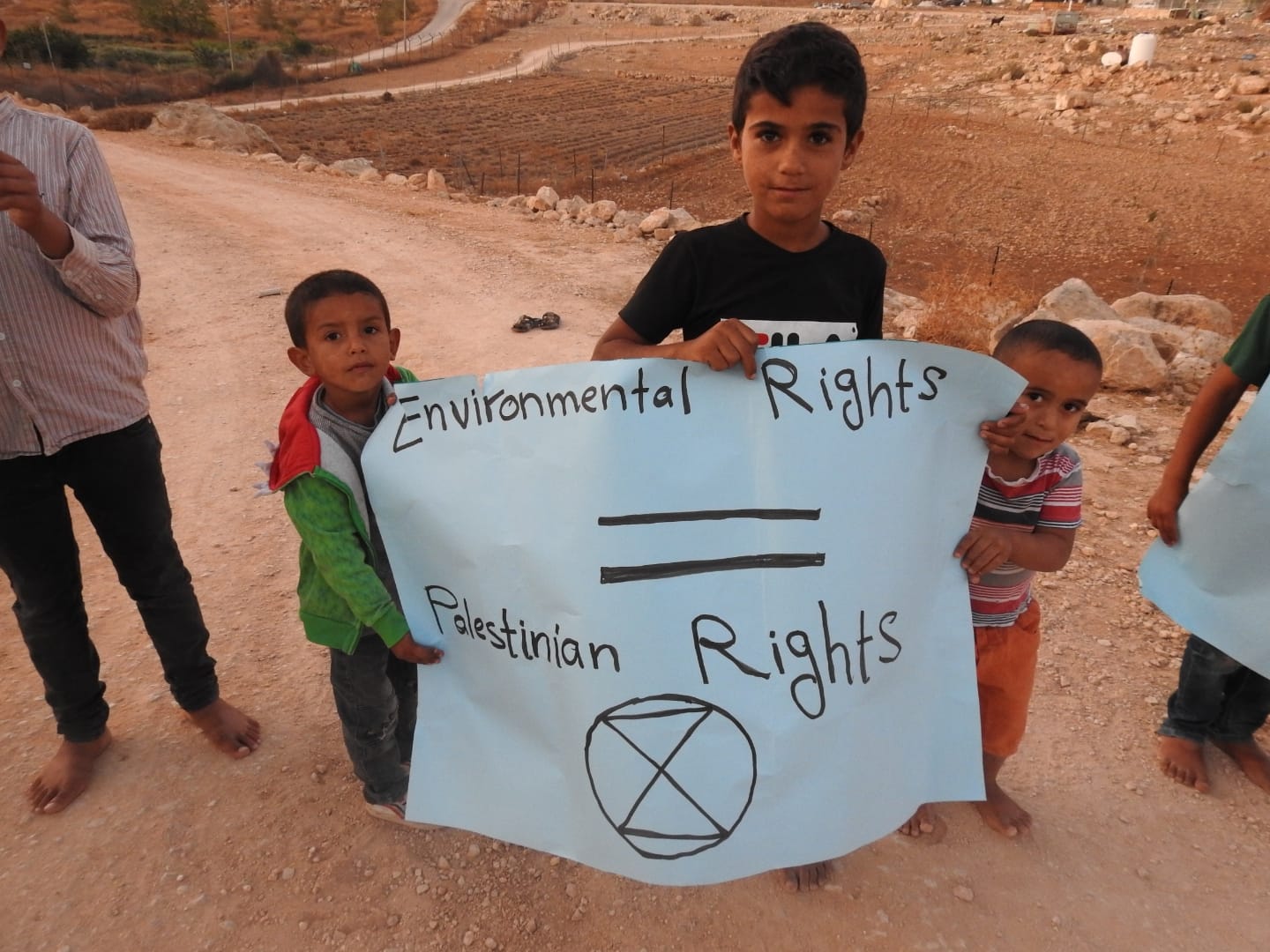Category: In the Media
-
Bedouin kids join global climate strike in Palestine’s first Extinction Rebellion protest
19th October | International Solidarity Movement | Umm al-Khair, South Hebron Hill Bedouin children in the West Bank joined global climate protests yesterday, calling out the Israeli occupation’s role in exacerbating the effects of climate change on Palestinians. Over a dozen protesters from the Bedouin village of Umm al-Khair in the South Hebron Hills, waved…
-
ISM stands in solidarity with the people of Kashmir
August 16 | International Solidarity Movement | Statement of Solidarity We, the International Solidarity Movement, express our solidarity with the people of Kashmir as they resist the annexation and occupation of their land by Indian military forces. We recognize the same methods of oppression and occupation used by the Israeli government in Palestine being…
-
Israeli human rights group proves military used live fire to shoot 9-year-old child in West Bank town
July 19 2019 | International Solidarity Movement | Kafr Qaddum, occupied Palestine An Israeli human rights group has proved that live fire was used by soldiers against the 9-year-old child who was shot in the head last Friday in Kafr Qaddum, exposing Israeli Military lies that none was used. The report by B’Tselem, published yesterday,…



